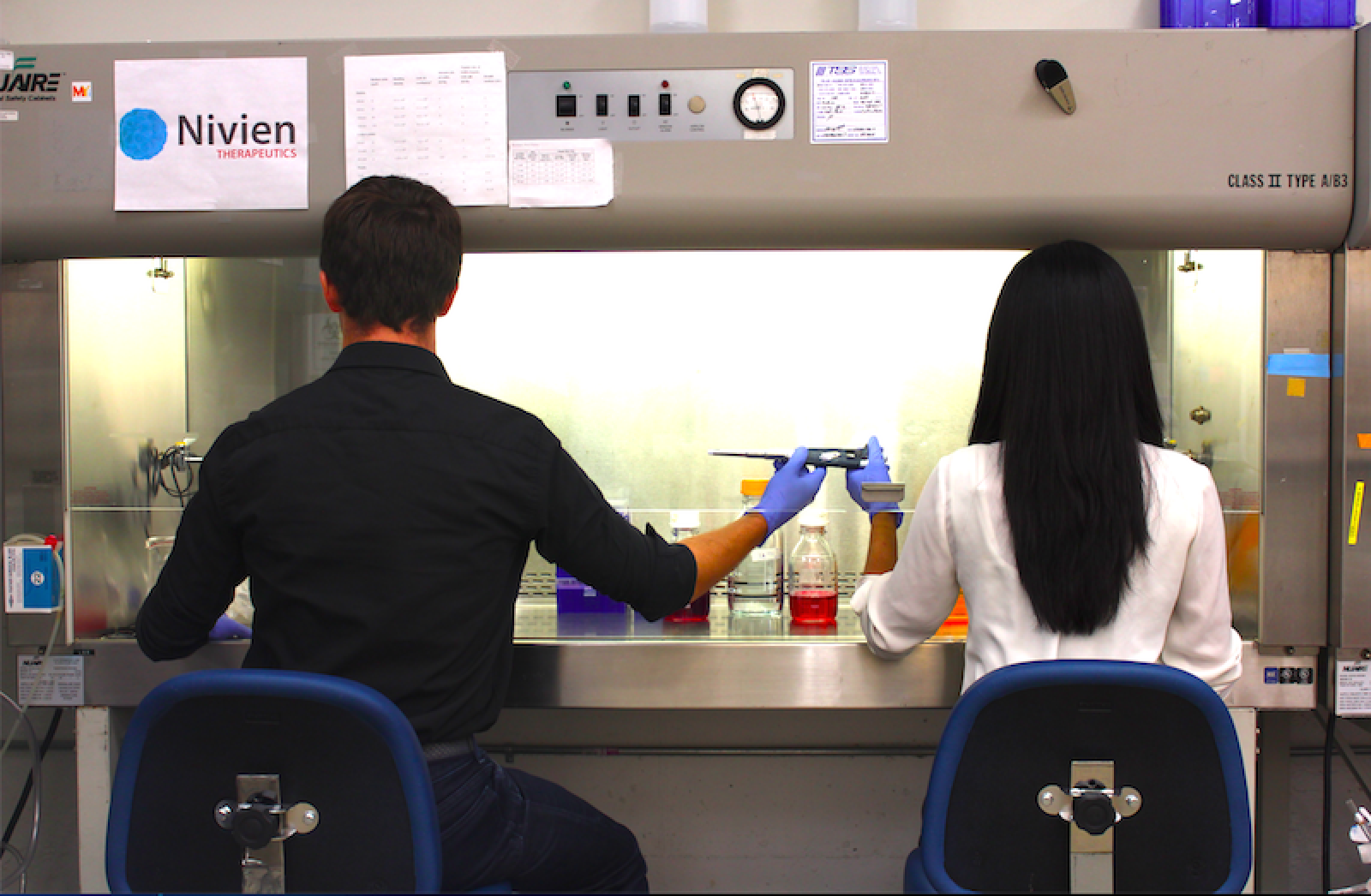Nathaniel Brooks Horwitz has never been one to hesitate in the face of a challenge.
The Martha’s Vineyard Regional High School graduate whose family lives in West Tisbury did advanced research in genetic science, edited a newspaper, and went from a kid with no experience in football to a starting linebacker.
That was all before he got into Harvard.
Few are surprised that at age 21 Mr. Horwitz is now the chief executive officer of a biotechnology startup company in San Francisco, working on a complex therapy with promise to make cancer treatment far more effective.
In the warp speed world of biotechnology, he and his research partner, Nikita Shah, found a way to link several recent discoveries, and began investigating a new way to battle cancer.
Mr. Horwitz was only a semester away from graduation at Harvard this year, when he decided the time was critical to start his company. Though he had no entrepreneurial background, he didn’t hesitate.
“It was time to go at it full out or not do it at all,” he said in a recent interview with the Gazette. “We had been working on this project for several months, it was going really well. We just got our first venture investment. There were key publications coming out, key patents were being disclosed. We knew we had to move as quickly as we could. The field as a whole moves so fast now. If you see an opportunity and don’t grab it, somebody else will.”
He said in the end, it wasn’t a hard decision to leave college so close to graduation. He lived among a group of seven students, and four of them had already left school or taken time off to begin their own ventures.
“Many of my friends had already gone down a similar path, not in biomedicine or biology, but across education, health care, fashion, so there was a lot of support with my friends.”
He knows how chancy most biotechnology ventures are, so he started the new company, Nivien Therapeutics, with few illusions. The risk is great, but so is the reward. The company has hired top scientists in the field, and attracted $600,000 in venture capital, with more in the works. If their discoveries prove effective, they could save thousands of lives each year. It all makes that last semester at Harvard a distant concept
“There’s always a coin flip chance that your pivotal experiments fail and you’re back at square one,” Mr. Horwitz said. “There’s also the chance that it goes extraordinarily well and I’m on the 10 to 15-year development path. You have to be ready for that when you sign on for a project. At the same time, failure rates are extraordinarily high, so you have to be prepared for it to blow up at any moment.”
The therapy he is working on is not a new kind of medicine, but a way for current medicines to work better. New research shows that cancer cells have escape routes, sometimes several, to survive when targeted by traditional chemotherapy and immunotherapy treatments. Cancer cells don’t give up easily.
The work Mr. Horwitz is doing would evaluate early doses of cancer fighting therapies, and figure out how the cancer cells are trying to evade them.
“Chemotherapy can be very effective in certain cancer types,” he said. “But it’s also often very ineffective in others. We are not developing a new expensive sophisticated treatment to directly kill cancer cells. Instead we’re trying to eliminate the barriers that cancer cells use to protect themselves from treatments like chemotherapy. We are targeting specific proteins and systems within cancer cells that stop chemotherapy targeted drugs, and immunotherapies from working. Our goal is to develop molecules that can be given in reformulations, or in combination with existing drugs to make them more effective in cancer types where they currently don’t work.”
Among those who is least surprised about the career path of Mr. Horwitz is his high school biology teacher, Elliott Bennett. She is now assistant principal at the Martha’s Vineyard Regional High School. He offered high praise of her guidance when he was a student here.
“I was concerned at first, going from the local public school to a place like Harvard, where half the class came out of high powered prep schools from all over the country,” Mr. Horwitz said. “I wondered if I’d be able to keep up academically the same way I had been able to in high school. I think Martha’s Vineyard Regional does a really excellent job preparing people for more rigorous academic colleges.”
Ms. Bennett said she keeps in touch with her former student, and is proud of his work.
“As much as he says that I inspired him, he definitely spurred me on professionally,” Ms. Bennett said. “He was interested in changing the way medicine addressed some diseases. He’s really got this can-do sense of confidence in doing things.”
Mr. Horwitz comes from a high achieving family. His mother, Geraldine Brooks, is an acclaimed novelist, and his father, Tony Horwitz, is an award-winning journalist. Both have been honored with a Pulitzer Prize. His original interest in cancer and biotechnology was spurred by his mother, who underwent therapy for breast cancer when he was a child.
Nathaniel said his parents were very supportive of his career move, including the decision to leave Harvard early.
“They know this is what I want to do for the rest of my life,” Mr. Horwitz said. “They figured why not take this opportunity and run with it.”




Comments (2)
Comments
Comment policy »